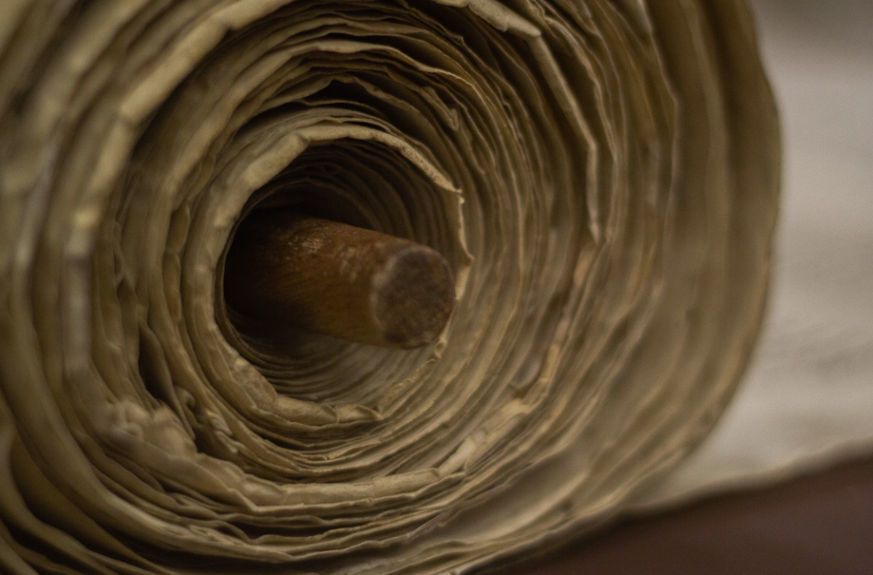The Interesting History of Notary Public Laws | NotaryLive

By NotaryLive Staff
Published on 01/20/2023
KEY TAKEAWAYS
- Discover the history of notary public laws
The earliest evidence of notarizations were the scribes used in Egypt, dating back to 2750 BC. Throughout history, notarizations helped to officialize transactions and played a fundamental role in processing our society forward. Keep reading to learn more about the history of notarizations and how they continue to be relevant today.
Fascinating historical facts about notarizations
- During the Middle Ages, Notaries were occasionally asked to witness the consummation of marriages involving royalty or members of the peerage.
- Evidence suggests that Shakespeare once worked for a Warwickshire Notary and continued to have contact with other English Notaries. Some suspect that such experiences fueled his inspiration to write plays such as "The Merchant of Venice."
- Women in America were prohibited from becoming Notaries until the early 1900s.
- After baseball player Pete Rose agreed to appear on a Wheaties box, executives asked him to sign and swear in the presence of a Notary that he'd eaten the cereal ever since he was a kid.
- A 127-year-old law in South Carolina requires all Notary applicants to swear allegiance to God. Currently, an atheist is challenging this requirement in a case before the state's Supreme Court.
- Despite his father’s wishes to have him follow in his footsteps and become a Notary, surrealist painter Salvador Dali had other passions to pursue.
Ancient Egypt: 2750-2250 B.C
In the Old Kingdom, "sesh," or "scribes," are the earliest established chroniclers of official communications in recorded history. Before cash, Ancient Egyptian "sesh," or "scribes," were established in the Old Kingdom and were the earliest known chroniclers of official communications in recorded history. Without cash, Ancient Egyptians relied on a complex bartering system to facilitate business transactions and used scribes to finalize agreements. In fact, such recordings were so highly valued that Pharaoh Tutankhamen even included writing equipment in his tomb for the afterlife.
Roman Empire: 535
Behold, the true ancestors of Notaries hail from the Roman Empire. According to scholars, Marcus Tullius Tiro was the first recognized notary in history. He developed a shorthand writing system called notae tironinae to record important speeches, and his system was adopted in recorded judicial proceedings. Shorthand note-takers were given the title of Notarius - hence the term notary.
During the time of 800 A.D., the only publicly appointed notaries included the Emperor, Pope, or another official granted special privileges. Notaries grew in popularity, allowing church officials and others to draw up internationally recognized instruments on behalf of all bishops, abbots, and counts.
Order of the Knights Templar: 1099-1307
The Knights Templar reigned as a monastic military order established at the end of the First Crusade that was mandated to protect Christian pilgrims en route to the Holy Land. Within two centuries, they morphed into an explosively powerful militia who made considerable contributions to the advancement of society by developing the modern banking system, mortgages, and loans. The Clergy of the Order were highly-educated notaries who became the gatekeepers for all Templar business, official documents, orders, and proclamations.
Notaries Public in England: 13th and 14th Centuries
Most of the public notary laws still used in the United States stem from English common law, except for New Netherland (parts of modern-day New York, New Jersey, Connecticut, Pennsylvania, and Delaware). Although notaries were originally appointed by the Papal Legate or the Archbishop of Canterbury, over time they came to be elected by their peers.
Thomas Fugill, was the first American colonist to be appointed notary public by the General Court of the Province in New Haven Connecticut in 1639, while the first general or common-law notary was appointed in the state of Massachusetts in 1644.
Exploration of New Worlds of Columbus and Notaries: 15th Century
Notaries even played a significant role when Columbus first beheld the New World in 1492 and always accompanied Columbus on all of his voyages serving as a testament to King Ferdinand and Queen Isabella that all discovered treasures and voyages were accounted for.
Notaries Public in Early & Modern America: 1600-1800
In Colonial America, only individuals displaying high moral character were appointed as public Notaries to ensure the safety of important documents. At this time, notaries were considered invaluable to trans-Atlantic commerce since parties often relied on mutual trust during trade exchanges to report on damage or loss to a ship's cargo. Unlike today, working as a notary in early America was a dangerous occupation, as notaries were occasionally killed for their involvement in authenticating official documents and recordkeeping as opposing factions fought for control of the New World.
Notarizations in the 21st Century
Today, notarizations still play a significant role in our society. Like in ancient history, the modern notary is a critical part of commerce, helping to assure the authenticity of a wide range of documents they notarize. is authentic.
Although notary laws and methods vary by state, the guiding principle of preserving recorded documents remains.
Interested in learning more about Notarizing Documents Online? Here are some other helpful articles:
Updated Date: 02/20/2026
